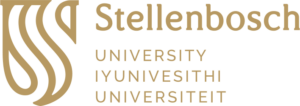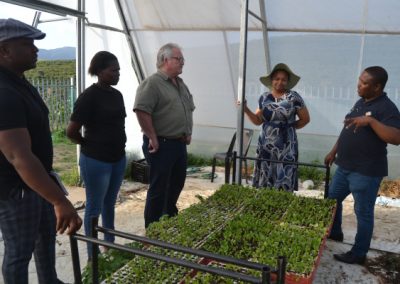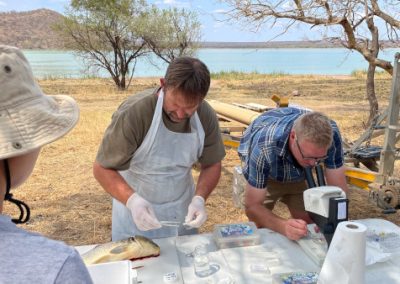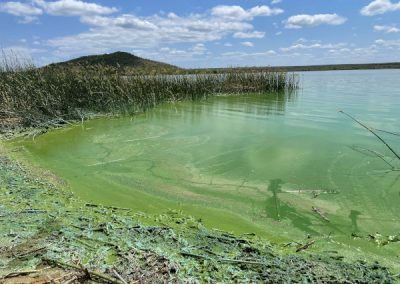Sustainable Development
at STELLENBOSCH UNIVERSITY
Sustainability contributions
SDG 14: Life Below Water
SDG 14
Life Below Water
Universities can drive impact by funding and conducting research into protecting aquatic environments and educating the public on the importance of these habitats. Universities can also help shape policy to protect aquatic environments.
SDG 14 is connected to food security and clean water (SDGs 2 and 6) and is strongly connected to climate change and life on land (SDGs 13 and 15). As with Climate Action, Life below water is linked to the AU Goal 6: Blue/ocean economy for accelerated economic growth.

Goal 6
Blue/ocean economy for accelerated economic growth
Water-based ecosystems are very important as they provide food and employment for many people. Aquatic plants capture a large amount of CO₂ annually and the health of these systems is thus essential to the prevention of climate change. South Africa has a large area of protected marine environment around the Prince Edward Islands but aquatic ecosystems surrounding the mainland are still very poorly protected.
There are a range of programmes at Stellenbosch University that contribute towards SDG 14: Life Below Water and AU Goal 5: Environmentally sustainable climate resilient economies and communities and Goal 6: Blue/ocean economy for accelerated economic growth.
SUs water custodianship extends beyond freshwater systems with the Department of Marine and Environmental Geochemistry exploring all processes that influence the chemistry in marine ecosystems. The work carried out in the department adds to water chemistry research carried out by the Chemical Engineering department, who explore water technologies through five research areas including:
-
Innovative water disinfection technologies
Sustainability Events
SDG 14
Life Below Water
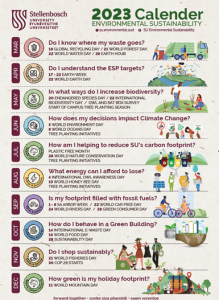 The SU Facilities’ Management Sustainability Calendar offers a range of events set in a handy monthly format. The University created it so that students could either join institutional events advertised on Instagram, team up with organisations that champion sustainability on campus, or organise their own events in their own environments to raise awareness.
The SU Facilities’ Management Sustainability Calendar offers a range of events set in a handy monthly format. The University created it so that students could either join institutional events advertised on Instagram, team up with organisations that champion sustainability on campus, or organise their own events in their own environments to raise awareness.
A highlight of the Annual SU Sustainability Calendar, is a Sustainability Mountain Walk (link) through the conservation area with SU’s Chief Operating Officer to showcase projects spearheaded by SU. The Coetzenburg Arboretum is a research ground for the Department of Forestry, and serves as an educational area for community interaction. Each year for Earth Week, students and staff plant indigenous trees on the mountain to help regenerate the areas previously were planted to invasive species. Other noteworthy items shown on the walk is 35 000 year old termite mounds that shed light on climate change and carbon storage, blocks planted with various Protea Fynbos species. The Ertjieskloof and Welgevallen dams are well-maintained parts of the walk and hiking trails and add to the biodiveristy of the area. as well as two dams.
Additionally, various student-led groups such as EcoMaties and UNASA hold sustainability-themed events with students for Earth Week, World Nature Conservation Day, the role of Cape honeybees, and much more. WEbinars and taks held.
There are a range of programmes at Stellenbosch University that contribute towards SDG 14: Life Below Water and AU Goal 5: Environmentally sustainable climate resilient economies and communities and Goal 6: Blue/ocean economy for accelerated economic growth.
SUs water custodianship extends beyond freshwater systems with the Department of Marine and Environmental Geochemistry exploring all processes that influence the chemistry in marine ecosystems. The work carried out in the department adds to water chemistry research carried out by the Chemical Engineering department, who explore water technologies through five research areas including:
-
Innovative water disinfection technologies
